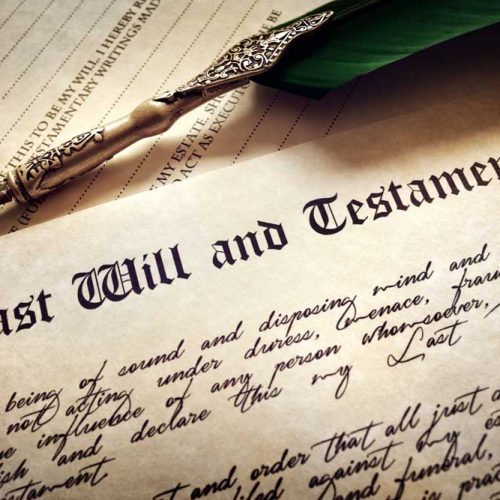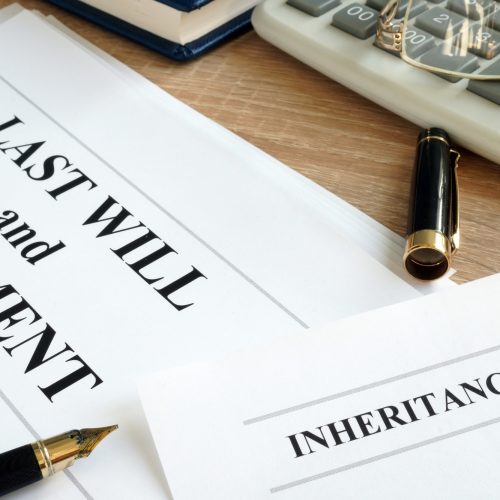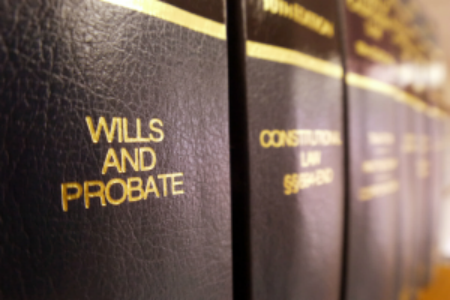What Is Estate Planning?
Did you know that only 33% of Americans have a will or living trust? In fact, since the beginning of the pandemic, the number of 18 to 34-year-olds with estate plans increased by 50%.
Whether you’re 18 or 80, everyone needs an estate plan. No matter how many assets your own, estate planning protects your loved ones and is a powerful way to create a legacy.
But what is estate planning exactly? Keep reading to learn more about how an estate planning attorney can help you make plans for the future.
What Is Estate Planning?
Estate planning is simply the process of making a clear plan for your assets. A will or trust is a plan for the management or transfer of your estate after your death or incapacitation. This ensures that your affairs are handled the way you want.
A will is a legal document that provides instructions around an individual’s property. This also includes making a plan for all of your assets including:
- House, land, or cars
- Bank or retirement accounts
- Stocks or investments
- Jewelry or furniture
- Digital assets (online and email accounts)
- Digital property (virtual currency, reward points, domain names)
Estate planning is not just about your finances and property. It also encompasses decisions around guardianship, custody of minor children, and medical actions if you become incapacitated and can’t make your own decisions.
If you die without a will, state laws of descent and distribution will determine who receives your property. In South Carolina, this means that your estate is subject to the state’s inheritance laws or intestate succession laws. While this usually means that your property will go to your closest living relatives, it can also be a time-consuming and expensive process for your eventual heirs.
All in all, a will ensures that whatever happens next your interests are protected.
Key Steps for Creating a Will
Everyone over the age of 18 should invest in creating a plan. From social media accounts to land, everyone owns assets. An estate plan guarantees that everyone knows your wishes.
Planning a will also include naming an executor, choosing beneficiaries, and setting up funeral arrangements. This also encompasses planning for potential estate taxes. A properly prepared estate plan will lay out your wishes, prevent misunderstanding, and ensure everything is done in the most tax-advantaged manner.
While a lot of steps go into the planning process, there are a number of key steps in the process including:
- Taking an inventory of everything you own
- Determining what type of estate plan you need
- Choosing a guardian for yourself, children, or pets
- Establishing directives like Durable Power of Attorney and executor
- Naming beneficiaries for assets that don’t already have them designated
- Partnering with a highly reviewed estate planning lawyer
- Creating, signing, and storing your plan
- Updating your estate planning documents as needed over time
While estate planning can feel overwhelming, it can also be a straightforward process when working with the right partner. Consulting an estate planning attorney at the beginning of your planning journey can save you a lot of time in the long term.
Estate Planning Documents and Taxes
There are a number of documents that make up an estate plan. Each item works together to create a clear plan for your final wishes.
Common planning documents include:
- Guardianship
- Will
- Living Trusts
- Financial Power of Attorney
- Durable Power of Attorney
- Advance Healthcare Directive
- HIPPA Authorization
- Intestate Succession Plan
Taxes also play a significant role in the estate planning process. The goal is to leave as much as you can for your heirs. The estate planning process includes tools to pass assets while avoiding hefty taxes.
South Carolina does not have an inheritance, estate, or gift tax. At the same time, there are other state and federal laws a lawyer can help you navigate. For example, federal laws do apply to gifts over $16,000 in a single calendar year.
Strategies that protect assets like AB trusts, estate freezing, education funding strategies, and charitable contributions can considerably reduce state and federal taxes.
Appointing the Right Executor
An executor of a will is the person legally named to take responsibility for your wishes. The executor legally administers an estate. This includes following instructions in will documents, ensuring assets are distributed, and estimating the value of the estate as determined by the Internal Revenue Code.
The executor is also responsible for paying debts and taxes.
An executor can either be a family member, lawyer, or accountant over the age of 18. They also must have no prior felonies. Working closely with an estate planning attorney can help you avoid intricacies around co-executors, disputes with heirs, and personal liability exposure.
Common Mistakes to Avoid
It can be easy to put off estate planning because it can seem complicated, costly, and confusing. Additionally, low-cost estate planning strategies can have long-term negative consequences for you and your loved ones.
Because a will captures your future plans, it’s essential to find the right partner. A cautious attorney will help you avoid future misunderstandings, delays, and inaccuracies.
Common mistakes to avoid include:
- Not regularly updating a plan over time
- Not planning for potential disability or long-term care
- Not thinking through the full implication of taxes
- Not having liquid assets that can be converted into cash
- Not putting children’s names on deeds to property
- Not making gifts during your lifetime
Find an Estate Planning Lawyer
If you’ve wondered “what is estate planning” in the last year, you are not alone. Americans across the country are investing in estate planning services because it’s the only legal tool to create a lasting legacy. Today is a great day to start thinking about how you can use a will to execute your future wishes.
If you are looking for a trusted local partner in Greenville, South Carolina, the De Bruin Law Firm is here to guide you throughout the estate planning process. We believe in delivering preeminent legal services based on sound and strategic legal counsel.
Contact us today to schedule a consultation and learn how we can put our years of local experience to work for you.














Leave a Reply
Want to join the discussion?Feel free to contribute!